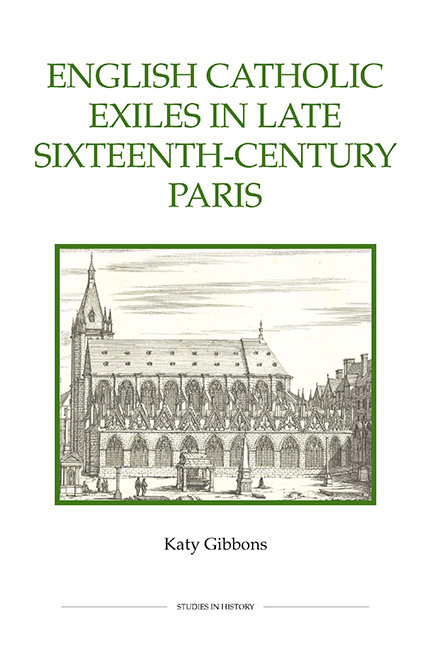Book contents
- Frontmatter
- Contents
- Acknowledgements
- Abbreviations
- Editorial conventions
- Introduction
- 1 The home and host contexts for Elizabethan exiles
- 2 Between civility and piety: exile niches in an urban environment
- 3 Exile in action: communicating and propagating the cause of radical Catholicism
- 4 Making sense of exile: alternative and competing representations
- 5 Returning or remaining? Divisions and longer-term developments in English Catholicism
- Conclusion
- Bibliography
- Index
4 - Making sense of exile: alternative and competing representations
Published online by Cambridge University Press: 11 May 2017
- Frontmatter
- Contents
- Acknowledgements
- Abbreviations
- Editorial conventions
- Introduction
- 1 The home and host contexts for Elizabethan exiles
- 2 Between civility and piety: exile niches in an urban environment
- 3 Exile in action: communicating and propagating the cause of radical Catholicism
- 4 Making sense of exile: alternative and competing representations
- 5 Returning or remaining? Divisions and longer-term developments in English Catholicism
- Conclusion
- Bibliography
- Index
Summary
The appearance of works relating to England in Paris in the 1580s had a particular resonance for French audiences. Whilst the exile example was being put to use in Paris, it was also highly contested across the Channel. This chapter moves outwards from the specific context of Paris, and ‘French’ publications, to explore debates over exile in English-language polemic and in manuscript sources created by or for individual exiles. The legitimacy and purpose of exile was a central question for those looking to stabilise the English Protestant state, and for those trying to construct and defend the English Catholic community. Two broader points need to be made about accessing and understanding these contemporary disputes. First, the traditional chronological approach to published justifications of exile may in some senses be unhelpful. Scholars have understood contemporary treatments of the long Elizabethan exile as displaying phases or ‘shifts’ in approach. Peter Holmes, for example, writes of a ‘loyalist phase’ in Catholic polemic, followed by outright resistance between 1584 and 1596. This was succeeded, he says, at the close of the reign, by negotiation for toleration under a Protestant ruler.This analysis, whilst coherent, is also rather schematic. It tends to overlook the inherently volatile conditions in which the arguments were being made: changes to policy at home, the prospects of a Catholic restoration and the shifting international situation. This risks downplaying the fact that many of these stated approaches were highly contingent on a range of factors. In many cases, the positions adopted by polemicists and others were not fixed, so that a thematic rather than chronological approach may be more appropriate. Rather than mark out clear ‘stages’ in English Catholic attitudes, themes of significance throughout the period can be identified. Exile remained contested, even as Elizabeth's reign came to an end. Secondly, more consideration is needed of how the better known literary debates relate to other source materials, by exploring the presentation of exile in a range of manuscript sources created in exile. Scholars have called for an approach which looks beyond the most obvious sources of information on exile: previously unexploited material from English and French archives offers an opportunity to explore these other ‘voices of exile’.
- Type
- Chapter
- Information
- English Catholic Exiles in Late Sixteenth-Century Paris , pp. 113 - 142Publisher: Boydell & BrewerPrint publication year: 2011



